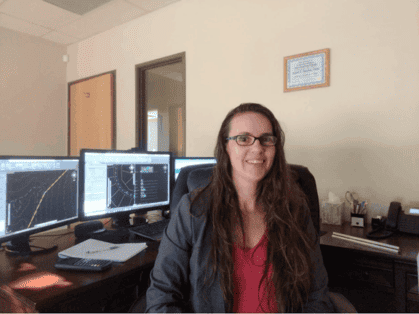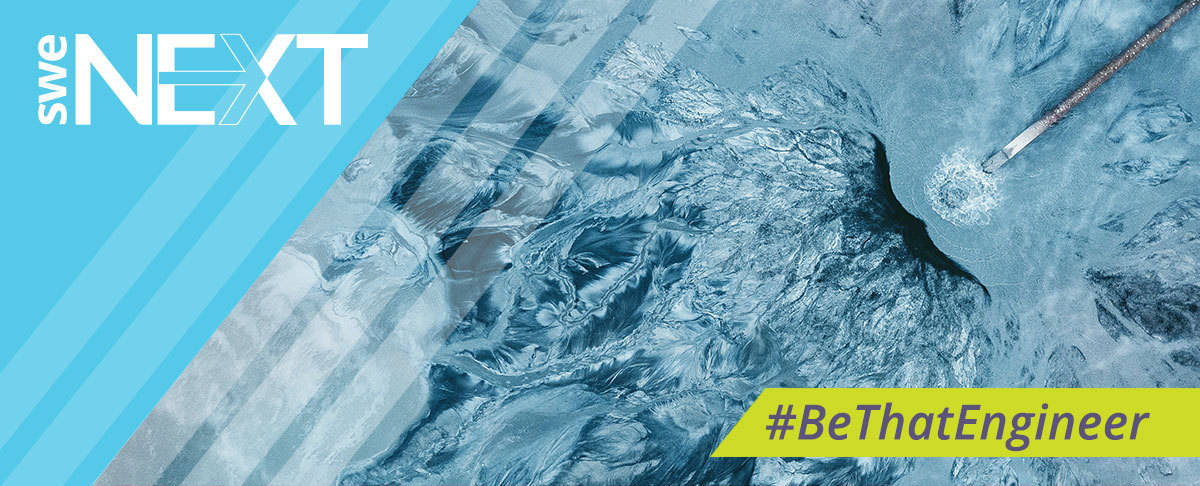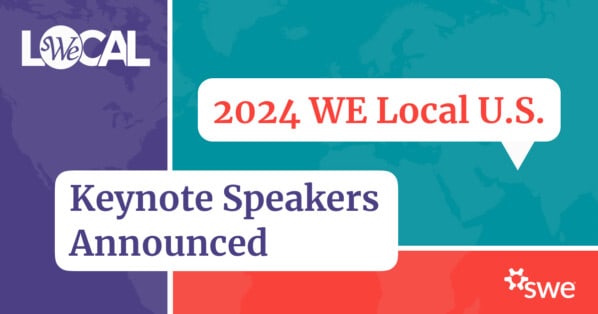Anna is a Professional Engineer at Innovative Land Consultants, Inc. Learn more about her work in land development and how you can #BeThatEngineer!

I’m a Professional Engineer in the State of Colorado having passed my examination in Civil Engineering with breadth in Water Resources & Environmental Engineering. Both of my parents were teachers who graduated with master’s degrees in organic chemistry from Wayne State University. I was raised in an area of Michigan that did not have a lot of people, so I spent a lot of time with my parents and their friends. I was kind of part of the STEM culture already. It seemed intuitive to go into math and science. The thought of going into engineering bloomed in high school.
When I was going into engineering at first, not having a history of engineers in my family was a little overwhelming. I think that someone going through the same situation would want to know that success happens one step at a time. Even if you need to know what the big picture is, you need to know the first step you should take, do it correctly, then move onto the next step. Don’t get overwhelmed. Don’t stress out. Live in the moment and do that step well. Then, move onto the next.
Civil engineering is the oldest field of engineering and you can specialize in structures, hydrology or hydraulics, or any subfield that interests you. Ultimately, I picked hydrology and hydraulics as my specialty. I found that it came naturally to me, while it didn’t come as naturally for other people. Hydrology is the study of stormwater. Engineers that specialize in hydrology can work to route rain, protect people so they have sufficient capacity under bridges, and monitor creeks to keep the dirt in place while the water rages past. Hydraulics is the study of fluids, in this case, mostly water. Rain mixes with the soil it touches, and civil engineers can introduce measures to settle out the soil in rain water. Sediments like soil are the main pollutant in Colorado’s creeks and rivers since it inhibits the formation of oxygen-rich water that the fish need to live.
I define myself as a Civil Environmental Engineer. I went to Michigan Technological University, which is about as far north as you can get in the USA. It is a very well-known university for engineering. I was in a Civil Environmental Engineering program where I learned about many different types of engineering and then specialized in hydrology and hydraulics. I was also the editor for a university poetry and prose publication. I’m one of those engineering hybrids that are also good at public speaking, writing, and editing.
After I graduated, I took a job with a complex beef processing facility that received around a thousand head of cattle per day. They had almost every known environmental pollution that we tried to correct. We had to do some off-site sampling, but I found that it was very repetitive. I did the same thing every year and did not enjoy that. My next position was entirely environmental engineering. I did environmental sampling and management of waste, such as mercury next to the Detroit River and oil spills on train tracks. Then, I moved into land development which I found very exciting. We could change what we worked on at any time and could try new things at each job site. After about 15 years in land development, I tried government work. I was the County Engineer for a few years, but I wanted to go back to engineering in land development, which is what I am doing today.
Currently, I am a Project Manager, Professional Engineer (P.E.), and Certified Floodplain Manager (C.F.M.) at Innovative Land Consultants, Inc. I have always wanted to be a P.E. I wanted to be the one to sign and send off plans. I thought that was the most prestigious thing you could do. As a P.E., I am the one who helps direct and mentor the junior engineers that join my firm. I enjoy helping people. I love that I get to do different things at each site, because each site is different and a new problem to solve. I like that I can go to public hearings and use my presentation skills in speaking to the public, telling them what we are going to do with the land. We help build community. After I’m done engineering the land, I can go back to the site a few years later and tell myself, “I did that.” I love that I get to see the results of my engineering.
As a Project Manager for a small, woman-owned business, I do it all, and I choose to do it all. That was something that I talked to my boss about. Any time you have a job, even if there is a job description, there’s still some leeway for you to actually be a person and put your input into it. Even if everyone before you was doing your job a certain way, you’re still allowed to say something to make that job better for you. I said to my boss, “I still want to be able to engineer. I still want to be able to go out to job sites and check that they are building things according to plan (construction observation). I still want to present at public hearings. I want to do it all.” She agreed. I get to do it all, and I love that.
My engineering manager was actually the one who encouraged me to join the Society of Women Engineers (SWE) 14 years ago. I joined the SWE Pike’s Peak Section as a professional member and served as Section President a few years later. Notably, I’ve also served as SWE Region i Treasurer and SWE Senator. I enjoy volunteering, networking and mentoring so much that I recently became a Life Member. I currently serve as the SWE Finance Committee Chair-elect and live within the SWE Rocky Mountain Section.
This post was written by the FY22 SWENext Programs Publications Workgroup.
Author
-

SWE Blog provides up-to-date information and news about the Society and how our members are making a difference every day. You’ll find stories about SWE members, engineering, technology, and other STEM-related topics.







